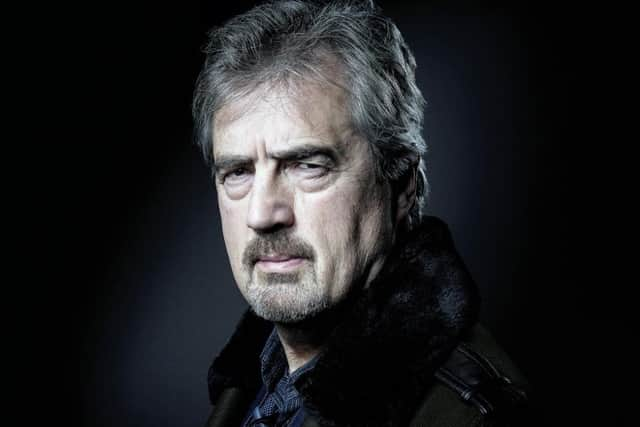Edinburgh Book Festival reviews: Sebastian Barry & Stephen Isserlis | David Farrier & Karine Polwart
On Sunday morning, while I was lying in bed, 16 people were walking around Edinburgh accompanying writers Merryn Glover and Rachel Hewitt and endurance cyclist Emily Chappell, who had (expertly) chaired their event the previous day. The walk, too, was a book festival event, and in the next couple of weeks there will be a book festival cycle ride (20 August) and even (26 August) a book festival run.
I mention this just to point out how festival events are increasingly pushing away from their traditional reading-chat-questions mooring. The three ‘think tanks’ - informal discussions with experts over food and drink - are another example: 30 minutes longer than the normal, if about £30 pricier too.
Advertisement
Hide AdOf course, writing is usually a solitary act and reading in public a solo one, and putting art forms together for the sake of it can just be gimmicky. But when it works, when words deepen music and music deepens words - ideally, when both are performed by the very best in their field - the effect can be magical.
That, at least, was the case on Sunday night, when Stephen Isserlis’s cello enhanced Sebastian Barry’s reading from his novel Old God’s Time to a point as near perfection as I can imagine.
The two men are friends, but they’ve never shared a platform before, and the only reason they did so was as a gift for outgoing book festival director Nick Barley. They had only rehearsed it once but, as Barry said afterwards, “there’s a certain grace in flying by the seat of your pants.”
Watch it yourself on the festival’s website. You’ll hear Barry read a passage from deep in his novel (Chapter 13) about an old man’s memories unspooling as he remembers being an eight-year-old boy listening to a cellist neighbour play. He has suffered much in his life, but these are memories of joy: first love, children, the sweetest times of a long marriage, fleeting touches of - that word again - grace.
The neighbour is playing Max Bruch’s Kol Nidrei. You don’t need to know that this is based on a Jewish prayer sung on the eve of the Day of Atonement, or that Isserlis’s mother copied its notes for him, or that Barry wrote in the role of the cellist just for him. Maybe you don’t even need to know that the novel’s plot will turn on abuse, or why that felt personal to Barry even though he himself wasn’t a victim.


But watch it yourself and you can almost feel Time slowing down and turning on itself, as in the novel, and you can hear Isserliss’s tender, pure notes as Barry reads about them “piercing ... without pain”.
Advertisement
Hide AdAdd another artwork - film - and you’ll see two things even those of us who were privileged to watch it live never saw. The harmony between words and music is mirrored with overlaid images: Barry’s face while reading this redemptive scene is superimposed on Isserliss’s fingers bringing Bruch to life. As the camera swings round on the audience, look at their expressions and you’ll see pure wonder.
I was hoping there’d be more examples of collaboration yesterday, but the event with artist David Austin and writer Hisham Matar was cancelled and the one on climate catastrophe with musician Karine Polwart and David Farrier failed to spark into life. Whenever they escaped the waffly, abstract questioning - Farrier, in a reading about uncovering harbingers of ecological disaster even on an East Lothian coastal walk, Polwart in a beautiful song about the journey of geological discovery James Hutton made off that same coast, rowing east to Siccar Point, we got a glimpse of what might have been.